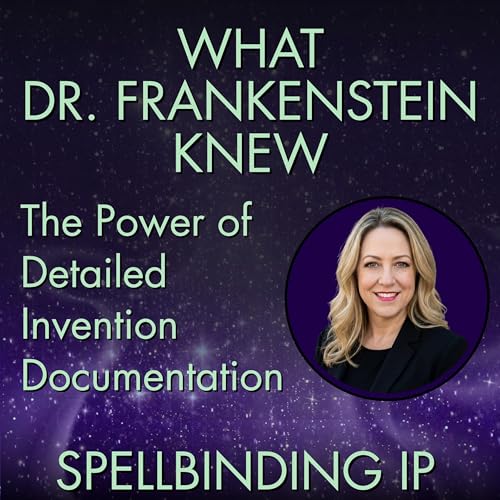New year, new patent goals? Before you spend thousands on the wrong type of protection, listen to this.
Chapters:
- 0:13 Getting a Patent Can Be Complicated
- 0:33 Step 1: First Things First. Do You Actually Need a Patent?
- 1:32 Step 2: Document Everything
- 2:52 Step 3: Do Some Preliminary Research
- 4:28 Step 4: Think About Your IP Strategy Holistically
- 6:00 Step 5: Understand Your Patent Options
- 7:14 Utility patent applications are where things get interesting
- 7:29 Provisional patent application
- 9:16 Non-provisional patent application
- 10:23 Step 6: Know What You're Up Against (The Reality Check)
- 12:38 Step 7: Hire a Patent Attorney (Yes, Really)
- 14:27 Ready to Take Action?
New year, new patent goals? Before you spend thousands on the wrong type of protection, listen to this.
Patent attorney Julie King breaks down the seven essential steps every inventor needs to take before filing a patent application, from figuring out if you actually need a patent (versus a trademark or trade secret) to understanding the brutal truth about costs and timelines.
You'll learn:
- How to tell if a patent is the right protection for your invention
- Why documentation can make or break your application (think Dr. Frankenstein's lab notes)
- The critical difference between provisional and non-provisional applications
- What a professional patent search actually costs ($1,000-$3,000+)
- Why a $25,000+ budget for a US patent isn't a scare tactic
- The guitar pickup patent that changed rock and roll forever
- • When DIY patent filing is actually acceptable (spoiler: rarely)
This episode is for inventors, entrepreneurs, and small business owners who need straight talk about patent law without the legal jargon. Whether you're inventing a new guitar pedal or developing the next big tech product, these steps will save you time, money, and heartbreak.
Julie King is a patent attorney with a master's degree in computer science and over 25 years of legal experience. She also happens to love horror movies and rock music, hence the creative analogies.
Avoid the legal horrors, and keep rocking your IP.
Full transcript and more resources at kingpatentlaw.com/blog
Ready to protect your brand and business? Book a consultation at kingpatentlaw.com.
Disclaimer: This information is for educational purposes only, is not legal advice, and does not form an attorney-client relationship. For advice about your specific situation, consult with a licensed attorney
 Feb 24 202632 mins
Feb 24 202632 mins 21 mins
21 mins 2 mins
2 mins Jan 29 20261 min
Jan 29 20261 min 2 mins
2 mins Jan 27 20261 min
Jan 27 20261 min 2 mins
2 mins Jan 26 202617 mins
Jan 26 202617 mins
